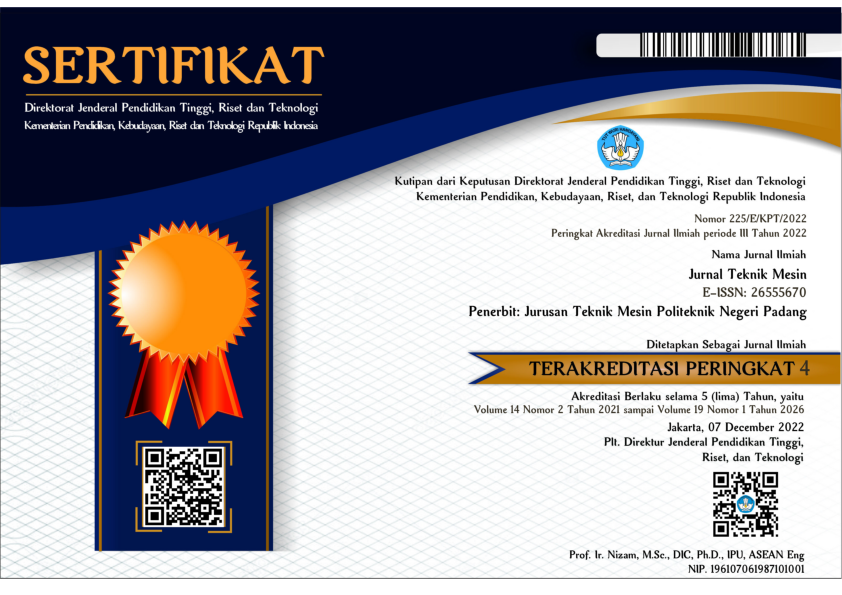Studi Kasus Pengembangan Energi Surya Sebagai Stimulus Ekonomi Hijau 2045
Abstract
To face the planetary crisis, Indonesia has prioritized sustainable development through the use of green economy practices to reduce future carbon emissions. Solar energy as one of the renewable energy sources has greater value than others, but its utilisation is still small. Consideration of this condition is discussed with the aim of evaluating the progress of the green economy; finding problems; providing solutions and suggestions for Indonesia's future development. The research method uses a systematic quantitative descriptive approach based on data collected through observations, interviews and questionnaire surveys from resource persons by providing 3 leverage factors namely; funding, regulation and institutions. The study results show that the regression coefficient of the funding factor variable (X1) is 0.365 and positive, then the funding factor variable (X1) has the largest coefficient compared to the coefficient of the regulatory factor (X2) and the institutional factor (X3), so that the funding factor is the most dominant factor in measuring the performance of solar energy success towards the implementation of the green economy. Without serious support from the government in terms of funding readiness, development goals will not be achieved, due to the large amount of funds needed to support the development of the Green Economy. However, the three variables are mutually sustainable by making policies and legal foundations to fulfil the funding needs of the green economy, regulations will be the foundation in mainstreaming the implementation and funding of green economy policies. Green economy planning, governance and supervision are supported by mature institutions and funds
References
M. Keliat et al., Ekonomi Hijau dalam Visi Indonesia 2045. 2022.
L. Dogaru, Green Economy and Green GrowthOpportunities for Sustainable Development, Proceedings, pp. 6370, 2021, doi: 10.3390/proceedings2020063070.
Akbar Bagaskara, D. Kurniawan, H. M. Bintang, R. J. Suryadi, and Shahnaz, Indonesia Solar Energy Outlook 2023, in IESO, 2022, pp. 143, 2022..
I. M. Sotnyk, O. M. Matsenko, V. S. Popov, and A. S. Martymianov, Ensuring the Economic Competitiveness of Small Green Energy Projects, Mech. Econ. Regul., vol. 1, no. 1, pp. 2840, 2021.
IRENA, Trading into a Bright Energy Future, in Trading into a Bright Energy Future, 2021, pp. 144. 2021, doi: 10.30875/b2e01618-en.
A. O. M. Maka and J. M. Alabid, Solar energy technology and its roles in sustainable development, Clean Energy, vol. 6, no. 3, pp. 476483, 2022, doi: 10.1093/ce/zkac023.
P. C. Lumbanraja and P. L. Lumbanraja, Analisis Variabel Ekonomi Hijau (Green Economy Variable) Terhadap Pendapatan Indonesia (Tahun 2011-2020) dengan Metode SEM-PLS, Cendekia Niaga, vol. 7, no. 1, pp. 6173, 2023, doi: 10.52391/jcn.v7i1.836.
T. Maidasari, L. Y. Prakoso, and S. Murtiana, Renewable Energy As A Green Economy Stimulus In Indonesia, J. Energi Baru dan Terbarukan, vol. 4, no. 3, pp. 183191, 2023, doi: 10.14710/jebt.2023.18496.
D. Putri, O. Hotimah, D. Ari, and M. Alhadin, Potensi Indonesia dalam Upaya Transisi Ekonomi Hijau di Kawasan Asia Tenggara, Uniplan J. Urban Reg. Plan., vol. 4, no. 2, pp. 8794, 2023, doi: 10.26418/uniplan.v4i2.70958.
ESDM, Handbook of Energy and Economic Statistics of Indonesia 2022. 2023.
IRENA, Indonesia Energy transition Outlook. 2020.
P. PLN, Rencana Usaha Penyediaan Tenaga Listrik (RUPTL) PT PLN (Persero) 2021-2030,, pp. 1915, 2022.
ESDM, Miliki Potensi EBT 3.686 GW, Sekjen Rida: Modal Utama Jalankan Transisi Energi Indonesia. [Online]. Available: https://www.esdm.go.id/id/media-center/arsip-berita/miliki-potensi-ebt-3686-gw-sekjen-rida-modal-utama-jalankan-transisi-energi-indonesia, Accessed: Feb. 04, 2023.
M. F. Aprizaldi and C. D. Saputro, Analisis Risiko Kecelakaan Kerja Dalam Penggunaan Tower Crane dengan Metode Analitycal Hierarchy Process (AHP), Inersia, vol. 18, no. 1, pp. 8393, 2022,: https://doi.org/10.21831/inersia.v18i1
I. Hermawan, Metodologi penelitian pendidikan kuanittatif, kualitatif dan mixed methode. Kuningan: Hidayatul Quran Kuningan., 2019.
S. A. Fitri, Amin, Analisis faktor-faktor yang berpengaruh terhadap penurunan risiko kecelakaan kerja, Jur. Tek. Sipil Univ. Mercu Buana, pp. 266276, 2022.
D. Ayunita, Modul Uji Validitas dan Reliabilitas, in Statistika Terapan, no. October, pp. 114, 2018..
I. Ghozali, Aplikasi Analisis Multivariete Dengan Program IBM SPSS., Edisi 8. Semarang: Badan Penerbit Universitas Diponegoro., 2016.
G. Saputra and U. Simanjuntak, Potensi Teknis Energi Surya Indonesia Lebih Tinggi, IESR Dorong Pemerintah Perbaharui Data Potensi Energi Terbarukan.. [Online]. Available: https://iesr.or.id/2021/03/24, Accessed: Apr. 24, 2021
N. Zuraya, Kementerian ESDM: Potensi PLTS Atap yang Dapat Dikembangkan 32,5 GW. [Online]. Available: https://ekonomi.republika.co.id/berita/rd7lmo383/kementerian-esdm-potensi-plts-atap-yang-dapat-dikembangkan-325-gw, Accessed: Jun. 05, 2022.
Khamilia dan Nor, Faktor-Faktor Dalam Meningkatkan Pengungkapan Green Banking, J. Ris. Akunt., vol. 3, no. 2, pp. 5866, 2019.
L. M. Firmansyah, Pentingnya Pembiayaan Hijau Untuk Proyek EBT. [Online]. Available: https://green.katadata.co.id/infografik/6610db9d4780c/pentingnya-pembiayaan-hijau-untuk-proyek-ebt&summary=Implementasi, Accessed: Apr. 16, 2024.
Kementerian ESDM, Strategi Pengembangan EBT Menuju Target 23%. Accessed: Nov. 24, 2020. [Online]. Available: https://www.esdm.go.id/id/berita-unit/direktorat-jenderal-ebtke/strategi-pengembangan-ebt-menuju-target-23
Syafrial, Desain Kelembagaan Multipihak dalam Rencana Pertumbuhan Ekonomi Hijau Literature Review, J. Manaj. Terap. dan Keuang., vol. 12, no. 04, pp. 948958, 2023.
Nadiroh, L. Setyowati, and U. Hasanah, Kelembagaan Lingkungan., 1st ed. Universitas Terbuka, 2020.
M. Syarif, Teori dan model pengembangan kelembagaan pendidikan tinggi islam [Theory and model of institutional development of Islamic higher education], Media Akad., vol. 28, no. 3, p. 333-362, 2013,
F. Ahmed, S. Kousar, A. Pervaiz, and A. Shabbir, Do institutional quality and financial development affect sustainable economic growth? Evidence from South Asian countries, Borsa Istanbul Rev., vol. 22, no. 1, pp. 189196, 2022, doi: 10.1016/j.bir.2021.03.005.













